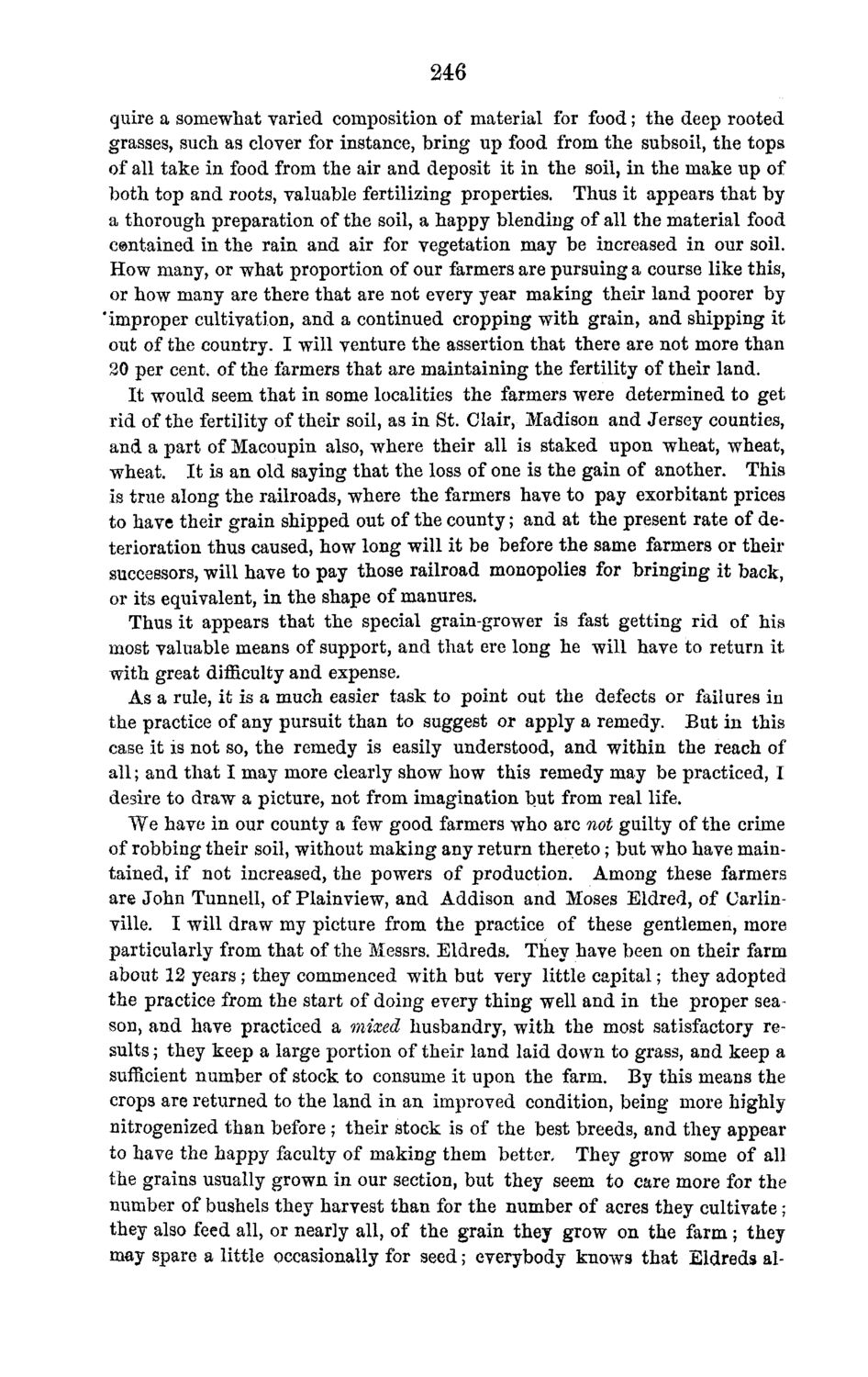| |
| |
Caption: Board of Trustees Minutes - 1870
This is a reduced-resolution page image for fast online browsing.

EXTRACTED TEXT FROM PAGE:
246 quire a somewhat varied composition of material for food; the deep rooted grasses, such as clover for instance, bring up food from the subsoil, the tops of all take in food from the air and deposit it in the soil, in the make up of both top and roots, valuable fertilizing properties. Thus it appears that by a thorough preparation of the soil, a happy blending of all the material food contained in the rain and air for vegetation may be increased in our soil. How many, or what proportion of our farmers are pursuing a course like this, or how many are there that are not every year making their land poorer by 'improper cultivation, and a continued cropping with grain, and shipping it out of the country. I will venture the assertion that there are not more than 20 per cent, of the farmers that are maintaining the fertility of their land. It would seem that in some localities the farmers were determined to get rid of the fertility of their soil, as in St. Clair, Madison and Jersey counties, and a part of Macoupin also, where their all is staked upon wheat, wheat, wheat. It is an old saying that the loss of one is the gain of another. This is true along the railroads, where the farmers have to pay exorbitant prices to have their grain shipped out of the county; and at the present rate of deterioration thus caused, how long will it be before the same farmers or their successors, will have to pay those railroad monopolies for bringing it back, or its equivalent, in the shape of manures. Thus it appears that the special grain-grower is fast getting rid of his most valuable means of support, and that ere long he will have to return it with great difficulty and expense. As a rule, it is a much easier task to point out the defects or failures in the practice of any pursuit than to suggest or apply a remedy. But in this case it is not so, the remedy is easily understood, and within the reach of all; and that I may more clearly show how this remedy may be practiced, I desire to draw a picture, not from imagination but from real life. We have in our county a few good farmers who arc not guilty of the crime of robbing their soil, without making any return thereto; but who have maintained, if not increased, the powers of production. Among these farmers are John Tunneil, of Plainview, and Addison and Moses Eldred, of Carlinville. I will draw my picture from the practice of these gentlemen, more particularly from that of the Messrs. Eldreds. They have been on their farm about 12 years; they commenced with but very little capital; they adopted the practice from the start of doing every thing well and in the proper season, and have practiced a mixed husbandry, with the most satisfactory results ; they keep a large portion of their land laid down to grass, and keep a sufficient number of stock to consume it upon the farm. By this means the crops are returned to the land in an improved condition, being more highly nitrogenized than before ; their stock is of the best breeds, and they appear to have the happy faculty of making them better. They grow some of all the grains usually grown in our section, but they seem to care more for the number of bushels they harvest than for the number of acres they cultivate ; they also feed all, or nearly all, of the grain they grow on the farm; they may spare a little occasionally for seed; everybody knows that Eldreds al-
| |